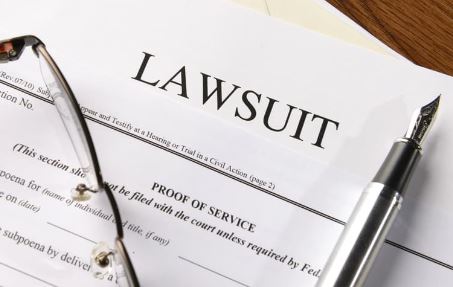Navigating the legal landscape as a business owner or entrepreneur can be as complex as it is critical. This rings especially true in light of the recent Trulife Distribution lawsuit, which has sent ripples through small business communities and legal circles alike. The case not only underscores the importance of legal compliance for businesses but also offers valuable insights into mitigating risk and ensuring a robust legal foundation for entrepreneurial endeavors.
Background of the Lawsuit
The Trulife Distribution lawsuit stems from allegations of trademark infringement and intellectual property misuse. The case, which unfolded as a protracted legal battle, has highlighted the need for stringent IP protection and the potential perils of non-compliance.
The Case in Detail
Trulife Distribution, a manufacturer and distributor of wellness products, found itself in legal crosshairs when a competitor alleged that its marketing materials bore a striking resemblance to the competitor’s copyrighted material. The defendant’s argument pivoted on the contention that Trulife knowingly and intentionally misappropriated their intellectual property for commercial gain.
The Legal Significance
Key legal precedents were explored, including the admissibility of digital evidence, the burden of proof in IP disputes, and the potential liability of third-party platforms in hosting infringing content. The case underscored the pivotal role of legal expertise in protecting a company’s brand and assets.
Impact on Small Business Owners
For small business owners, the Trulife Distribution lawsuit serves as a stark reminder of the legal minefield that can accompany enthusiastic business growth.
Legal Considerations for Small Businesses
The case illuminated the importance of a robust legal strategy, from IP protections and regulatory compliance to risk management and litigation preparedness. Small businesses, often operating with limited resources, must judiciously allocate their legal budget to safeguard their operations.
Lessons Learned
The lawsuit provided a real-world lesson in the potential costs of IP infringement. Small business owners must be vigilant about the origin of their marketing materials and the uniqueness of their branding to avoid unwittingly infringing on another entity’s rights.
Implications for Entrepreneurs
Entrepreneurs are inherently risk-takers, but calculated risks must also consider the legal terrain. The Trulife Distribution lawsuit imparts critical insights into managing legal vulnerabilities as an entrepreneur.
Understanding Legal Risks and Compliance
Entrepreneurs must develop a deep understanding of the legal frameworks that govern their industry, including IP protections, consumer rights, and contractual obligations. By fostering a culture of compliance, entrepreneurs can preemptively address potential legal issues.
Mitigating Potential Legal Challenges
The lawsuit underscored the value of proactive legal oversight. Entrepreneurs should work closely with legal counsel to develop risk mitigation strategies, such as regular IP audits and swift response protocols to legal threats.
Insights for Legal Professionals
For attorneys, the Trulife Distribution lawsuit offers a fertile ground for academic analysis and strategic considerations for future cases with similar legal underpinnings.
Analysis of Key Legal Aspects
Legal professionals can dissect the case to identify the strengths and weaknesses of the arguments presented, contributing to the collective body of legal knowledge around IP enforcement and defense.
Recommendations for Legal Professionals
In the wake of the lawsuit, legal professionals should hone their skills in navigating the burgeoning digital economy’s legal complexities, including the vicarious liability of online platforms and the role of social media in spreading infringing content.
Conclusion
The Trulife Distribution lawsuit provides a compelling narrative on the underappreciated but consequential role of legal matters in business. For entrepreneurs and small business owners, it emphasizes the need for legal vigilance and preparedness. And for legal professionals, it offers a case study rich in implications and tactical considerations.
In an era where intellectual property and brand reputation are currencies as tangible as money, the ability to anticipate and address legal challenges is not merely an advantage but a necessity. By reflecting on the impact of this case across different segments, you are poised to take decisive actions that strengthen your business’s legal footing.
Remember, a lawsuit such as Trulife’s is not just about the verdict; it’s about the story it tells in urging all parties involved to be proactive and diligent in their legal stewardship. Whether revisiting your business’s compliance protocols, reevaluating the strength of your intellectual property assets, or seeking informed legal counsel, the takeaways from the Trulife Distribution lawsuit can guide you in resiliently adapting to the legal complexities of the modern marketplace.






